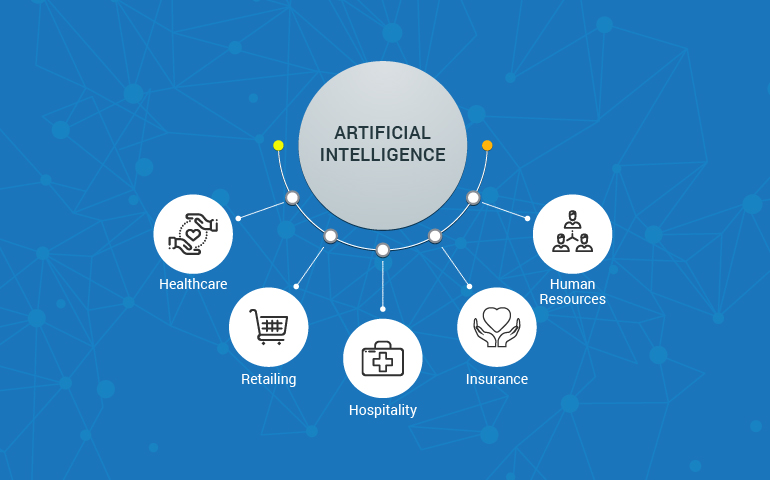
## AI’s Role in Transforming Healthcare: Advancements and Implications## AI’s Role in Transforming Healthcare: Advancements and Implications Artificial intelligence (AI) is revolutionizing the healthcare industry, driving transformative advancements that enhance patient care, improve diagnosis, and optimize healthcare delivery. ### Advancements: Precision Medicine: AI algorithms can analyze vast amounts of patient data, including medical history, genetic information, and lifestyle factors, to identify unique treatment plans tailored to individual needs. Automated Diagnosis: AI-powered systems can assist clinicians in making more accurate and timely diagnoses by analyzing medical images (e.g., X-rays, CT scans), detecting patterns, and providing suggestions. Predictive Analytics: AI models can predict disease risk, identify high-risk patients, and anticipate health outcomes, enabling proactive interventions. Virtual Health Assistants: AI-powered virtual assistants can provide 24/7 support to patients, answer questions, triage symptoms, and schedule appointments. Drug Discovery: AI algorithms can accelerate drug discovery and development by predicting compound activity, optimizing drug targets, and identifying potential side effects. ### Implications: Improved Patient Outcomes: AI-assisted technologies enhance diagnosis, treatment planning, and monitoring, leading to better patient outcomes and reduced healthcare costs. Personalized Care: Precision medicine approaches powered by AI enable more individualized and effective treatments, empowering patients and improving health equity. Time and Resource Optimization: AI automates tasks, facilitates data analysis, and supports clinical decision-making, freeing up healthcare professionals’ time and resources. Early Detection and Intervention: Predictive analytics and AI-assisted diagnosis enable early detection of diseases and proactive interventions, potentially preventing further complications. Increased Accessibility: Virtual health assistants and remote monitoring systems powered by AI make healthcare more accessible, particularly for patients in rural or underserved areas. ### Challenges and Considerations: Data Privacy and Security: Managing vast amounts of sensitive patient data raises concerns about privacy and security, requiring robust data protection protocols. Algorithmic Bias: AI algorithms must be trained on unbiased data to ensure fair and equitable outcomes for all patients. Ethical Implications: The use of AI in healthcare presents ethical questions, such as responsibility for AI-generated decisions and the potential for discrimination. Healthcare Workforce Implications: AI automation and decision support systems may impact the roles of healthcare professionals, necessitating continuous training and upskilling. ### Conclusion: AI is transforming healthcare by enhancing diagnosis, improving treatment planning, and optimizing healthcare delivery. While advancements hold great promise, it is essential to address challenges and considerations related to data privacy, algorithmic bias, ethical implications, and workforce impacts to fully realize the transformative potential of AI in healthcare and ensure its equitable and responsible adoption.
Posted inNews